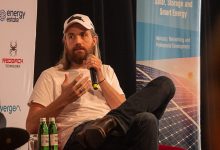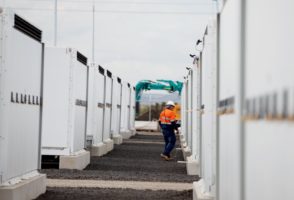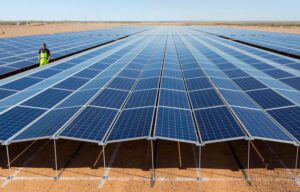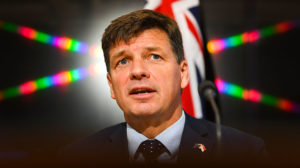Tech billionaire Mike Cannon-Brookes says he and his partners, the $A1 trillion Canadian asset manager Brookfield, estimate it will take around $20 billion to help its takeover target AGL, the country’s biggest polluter, reach zero emissions by 2035.
“We believe we can hit net zero, including all forms of thermal generation by 2035,” Cannon-Brookes said on Monday, shortly after expressing his disappointment that AGL had rejected the $8 billion bid put forward by his Grok Ventures and Brookfield over the weekend.
The joint bid was designed to fast-track the closure of AGL’s remaining coal fired generators, including and particular the Loy Yang A brown coal generator that AGL wants to keep running more than a decade longer than most market forecasts.
In a statement confirming the offer on Monday, Cannon-Brookes and Brookfield said they intended to build 8GW of renewables and storage to replace the 7GW of coal generation that would be retired.
“It is intended AGL will be net zero by 2035,” the two companies said. “Thermal capacity will not be taken out of the system until it has been replaced by renewables and storage to ensure network and pricing stability and reliability.”
Brookfield says it has a “defined plan” for the replacement of coal, and said investors needed to do more than simply avoid emissions intensive industries and “tackle the issue head on.”
Mark Carney, the vice chair of Brookfield Asset Management and head of transition investing, and the former head of the Bank of England, said the energy transition will be one of the biggest investment opportunities of our lifetime.
“It is estimated that more than US$150 trillion will need to be invested globally through 2050 to drive the decarbonisation of energy markets and our economy — that’s approximately US$5 trillion every year.
“The time to act is now. Investment firms such as Brookfield and Grok Ventures, with their access to capital and deep operating expertise and development capabilities in power markets and renewables, can make major contributions to businesses such as AGL to help them achieve their net-zero ambitions for the benefit of their shareholders, employees and the broader community.”
“Australia should have the lowest price, energy, electricity in the world,” Cannon-Brookes told ABC Radio National. “We have all of the assets to make that happen. There’s no logical reason, no economic reason we should not have the cheapest power in the world. that is what we’re intending to go after.”
Cannon Brookes said decarbonisation is the greatest economic opportunity facing Australia, but it “requires vision and action”, and that’s what he and Brookfield were demonstrating with the bid for AGL.
“We strongly believe it will result in low bills for consumers we can find this transition ourselves we can build out the replacement capacity, which is what the government wants to happen will create far more jobs in during the transition inside the combined entity,” he said.
“For those listening who aren’t aware AGL is the single largest emitter in the country. Right it represents over 8% of Australia’s emissions. That’s more than every single car on the road, more than all domestic and international aviation.
“And if it’s a country, it’s bigger than Sweden, Ireland or New Zealand, and that would make it one of the biggest decarbonisation projects on Earth. And I think Australia should be really proud that we can do it in an economic way that creates jobs and drives prices down. It’s a very sensible thing.”
Cannon-Brookes said he and his partners had $20 billion to help fund the transition, building new renewable energy assets and contracting others.
“Obviously, as a private company, we can do it a lot faster than as a public company, and obviously significantly earlier than 2045”, which is AGL’s current schedule for the closure of Loy Yang A brown coal generator.
Will such an accelerated transition result in higher prices and an unstable grid?
“I don’t think it will. I think quite the opposite,”Cannon-Brookes said.
“I think it will bring it down. I think we know that renewables are the cheapest source of power generation. What you require is the ability to capital to make that transition and to do it sensibly and rationally.
“That is doing it inside of one organization. And I think we have the right partners in the consortium to do that. And to take action on doing that and that’s what we intend to do.”
See also: Cannon-Brookes’ unstoppable billions pierce the bubble of fossil fuel denial
And : Cannon-Brookes leads green bid for AGL, to fast-track coal closures
And: AGL rejects Cannon-Brookes early closure bid, insists it can reinvent itself
more to come






